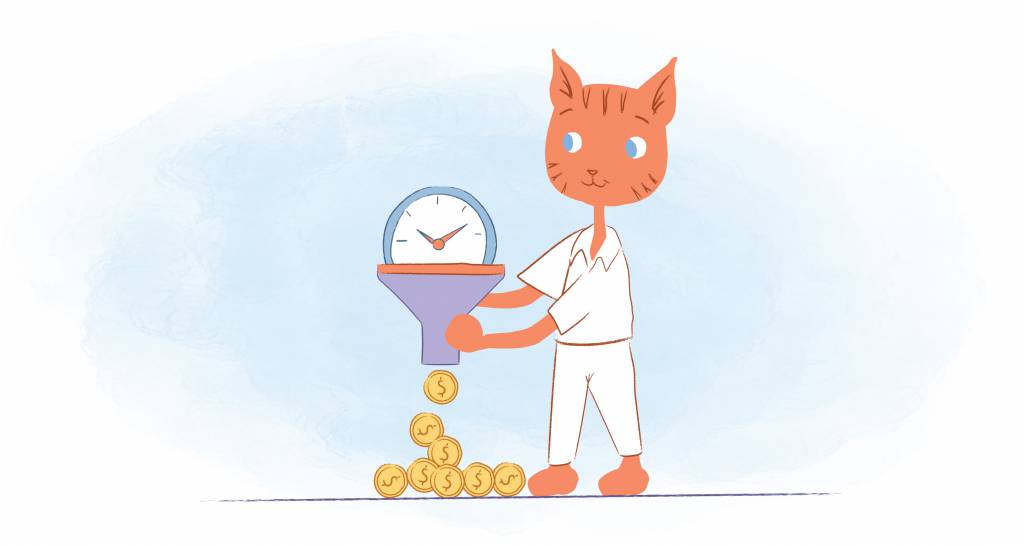

Would you describe your daily routine as frantic, spinning tops rather than a well-oiled machine? It’s not just you.
With constant notifications, endless to-do lists, and pressure to “do it all,” time management has become a mythical beast that few can master. At the end of the day, though, we feel simultaneously overwhelmed and underwhelmed by emails, deadlines, family commitments, and the irresistible pull of social media.
But what if I told you that there is a surprisingly simple yet powerful tool that can help you reclaim your time? Enter: habit tracking.
I know what you’re thinking. “Habit tracking? Sounds like one more chore.” But hear me out. It’s not about rigid schedules and joyless discipline. Ultimately, it’s about gaining clarity, building consistency, and living an intentional life. Think of it as a friendly nudge, a gentle guide to help you navigate the daily whirlwind and focus on what’s most important.
This post will explain how habit tracking can transform your approach to time management so you can live the life you truly desire. Now is the time to stop the frantic spinning and start moving forward.
The Science of Small Wins: Why Habit Tracking Works
Before we dive into the how-to, let’s explore a little science. You’ve probably heard of Charles Duhigg’s “The Power of Habit,” which explains that habits are based on a simple loop: cue, routine, and reward. As we track our habits, we become acutely aware of this loop. Specifically, it is easy to see the cues that trigger our actions, the routines we follow, and the rewards we seek.
Why is this awareness powerful? By disrupting negative loops, we can reinforce positive ones.
Think of it like this: you want to stop snacking late at night. If you track when you snack, you will notice that boredom or stress are often the cues, and comfort is the reward. By seeing these patterns, you can replace them with healthier alternatives, such as a walk or herbal tea.
Furthermore, studies show that self-monitoring, which is essentially habit tracking, significantly increases motivation and accountability. You’re more likely to continue if your progress is laid out before you, whether as a string of checkmarks or a colorful graph. Like a visual pat on the back, it reminds you that things are going well.
Why Habit Tracking is Your Time Management BFF
Okay, so we know it works. But how exactly does habit tracking translate to better time management? Well, let’s break it down;
Unveiling time thieves.
Most of the time, we underestimate the amount of time we spend doing certain activities. However, habit tracking reveals these hidden time thieves.
Do you spend hours scrolling through social media? Is your inbox flooded with endless email chains? When you track your time, you can see where your precious hours are going, which allows you to make informed decisions.
Building the foundation of consistency.
When it comes to time management, it’s not about occasional bursts of productivity; it’s about consistent effort. By tracking your habits, you can build consistency over time. The more completed tasks you see, the more likely you are to keep that momentum going.
Overall, it’s like building a muscle — the more you use it, the stronger it becomes.
Slaying the procrastination dragon.
It’s happened to us all — staring at a task, knowing it needs to be done. But somehow, finding a million other things to do instead.
It is possible to break this cycle by tracking your habits. How? By tracking focused work sessions and other important tasks, you build accountability. Seeing an unbroken streak on your tracker becomes a powerful motivator, keeping you on course.
Optimizing your productivity sweet spot.
It’s natural for each of us to have times when we are more productive than others. By tracking your habits, you can identify these peak productivity hours and adjust your schedule accordingly.
Would you consider yourself a morning person? If so, schedule your mornings for the tasks that are most important to you. Are you prone to energy dips in the afternoon? If you can, schedule activities that are less demanding during that time.
Creating a balanced life.
When it comes to time management, it’s not just about work. The goal is to live a balanced and fulfilling life. In addition to prioritizing self-care and family time, habit tracking can also enhance relaxation. Is exercise a priority for you? Do you spend time with your family and friends?
By tracking these habits, you can ensure that you don’t neglect anything important in your life.
Getting Started: Your Habit Tracking Toolkit
Ready to give habit tracking a try? Here are some steps to get you started;
- Identify your keystone habits. To begin, identify a few key habits aligned with your goals. Whether it’s 90 minutes of focused work, 15 minutes of meditation, or 30 minutes of reading, choose habits that will benefit you most. FYI, DeskTime data finds that most productive people work for 52 minutes, then break for 17 minutes.
- Choose your tracking method. There are countless ways to track habits. Apps like Habitica, Streaks, and Habitify offer convenient features such as reminders and analytics. Bullet journals or simple spreadsheets can also be effective if you prefer a tactile approach. What is most important is staying with a method that works for you.
- Define your goals clearly and precisely. Do not simply say, “Work more efficiently.” Instead, specify what that means in concrete terms. For example, “spend 90 minutes each morning working on priority tasks without any distractions.”
- Review and adjust regularly. Tracking habits is an iterative process. As such, review your progress regularly and make adjustments as necessary. It’s okay to tweak your approach if a habit isn’t sticking. Consider breaking it down into smaller steps or combining it with an existing routine.
- Celebrate your wins. You deserve to be rewarded for your progress, so remember to do so. It could be anything from a small treat to a relaxing break or even a simple pat on the back. The act of celebrating your success reinforces positive behavior and keeps you motivated.
Navigating the Habit Tracking Hurdles
Habit tracking isn’t always easy. So, some of the challenges you may face and how to overcome them are listed below;
- Forgetting to track. Use your smartphone to set reminders or integrate habit tracking into your daily routine. For instance, if you want to review your tracker while sipping on your morning coffee or just before bed.
- Feeling overwhelmed. Take baby steps. Tracking too many habits at once can be overwhelming. Start with a few key habits and add more as you become more comfortable.
- Losing motivation. If you feel your motivation is waning, remember your goals and reflect on your progress. Also, don’t forget your reasons for starting and how far you’ve come.
The Power of Small Steps, Big Results
By tracking your habits, you can reclaim your time and build a more fulfilling life. But the goal isn’t perfection; it’s progress. If you track your habits consistently, you’ll learn how you spend your time, become more consistent, and ultimately reach your goals.
So, get a tracker, start small, and see how those small steps can lead to big results. You might be surprised at what you can accomplish.
FAQs
What is a habit tracking for time management?
By monitoring your daily or weekly activities, you can identify patterns and understand how you spend your time. The better you track your time habits (e.g., focused work, breaks, distractions), the more efficient you will become.
Why is habit tracking useful for time management?
Habit tracking provides the following;
- Awareness. Provides a breakdown of where your time is spent.
- Accountability. It encourages you to stay on top of your planned activities.
- Data-driven insights. Provides you with the ability to analyze trends and make informed adjustments
- Motivation. You will be more motivated to maintain good time management habits when you see progress.
What types of habits should I track for time management?
You may want to consider tracking;
- Focused work sessions.
- Length of breaks.
- The amount of time spent on specific tasks.
- Social media, email, and other distractions.
- The time spent planning and reviewing.
- Amount of time spent on essential tasks that aren’t urgent.
- The amount of time spent on urgent tasks.
How do I choose which habits to track?
Start by developing habits that relate directly to your time management goals. You should ask yourself;
- Are there any areas of my time management that I struggle with?
- What behaviors would I like to change?
- Which tasks are most important to my goals?
How can I integrate habit tracking with other time management techniques?
You can combine it with;
- Time blocking.
- The Pomodoro Technique.
- Task prioritization, such as the Eisenhower Matrix.
- Goal setting methods.
Image Credit: Magda Ehlers; Pexels











John Rampton
John’s goal in life is to make people’s lives much more productive. Upping productivity allows us to spend more time doing the things we enjoy most. John was recently recognized by Entrepreneur Magazine as being one of the top marketers in the World. John is co-founder and CEO of Calendar.